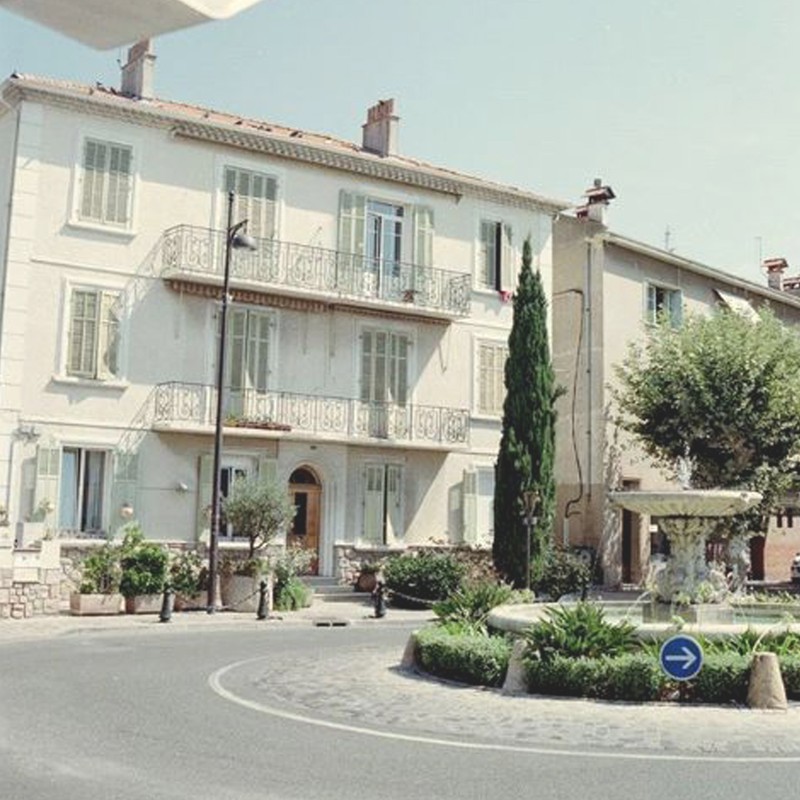France Are Building A Village For Alzheimer’s Patients
Small shared houses are being designed to reflect the personal tastes of 120 Alzheimer’s patients who are to live there, and will be situated in four separate districts, similar to a typical residential complex or nursing home, but unique in the shared illness of all the patients and the rural French setting, as opposed to the oppressive confines of a medical facility.
Residents in the small village in Dax in southwestern France, will be able to do their shopping in a small supermarket, go to the hairdressers, visit a local brasserie, peruse books at the library, work out at the gym and even visit a little farm.
The village’s architect, Nathalie Grégoire, explains that there will be a “lack of enclosures”, instead favouring vast green areas. The architectural design will focus on ensuring patients can walk easily around the space, and improve their sense of direction and memory.
The aim of the project, which began construction at the start of June, is to reduce anxiety and isolation, all while testing the efficacy of alternative treatments for Alzheimer's. Patients won’t be treated with medication or escorted by nursing aides, but instead will be allowed to live in relative freedom, while ‘cohabiting’ with plain-clothed live-in carers, medical staff, researchers and volunteers.
Alzheimer’s is the most common cause of dementia, and is an irreversible, progressive brain disorder that slowly dismantles memory and thinking skills. Eventually, the ability to carry out even the simplest of tasks becomes difficult, if not impossible. According to Alzheimer’s Research UK, there are currently about 850,000 people suffering from dementia in Britain. One in 14 over-65s suffer from dementia, and over 42,000 of UK residents under 65 have the disease.
“People living with dementia tend to want to stay in their own homes and retain as much independence as possible,” explains the Alzheimer’s Research UK site. “But as the condition progresses, full-time care can be needed and many people with dementia move into care and nursing homes.” In fact, 69% is the average prevalence of people living with dementia in care homes. But as dementia sufferers are often in a state of confusion or disorientation, living in a care home can often be extremely stressful for both the patient and their family.
That's why France’s Alzheimer’s Village will focus on letting patients live as normally as possible, to help “maintain their participation in social life,” professor Jean-François Dartigues, neurologist at the Pellegrin university hospital in Bordeaux, told the Telegraph. “The brain is the organ of human relations par excellence," he added.
The village is the idea of late socialist minister Henri Emmanuelli, who launched the project after reading about a Dutch gated model village in Weesp, Netherlands, with a similar set-up, which was viewed as a pioneering care facility for elderly people suffering with dementia. In Weesp, the staff say they don’t treat patients, but rather that they “care for residents”.
Some have criticised the structure, saying it reminds them of The Truman Show, in which Jim Carrey played a man living in an entirely fake town as the unwitting subject of a television show, but advocates insist that, compared to more traditional nursing homes, residents are more active, less medicated and exponentially happier.
With the French iteration, Dartigues says they will be conducting a comparative study with more typical nursing homes to examine the “impact of new therapeutic approaches on patients, carers and medical staff.”
Supporters of the project believe that this ‘care not treatment’ viewpoint is better for patients than standard practices, and the village is a chance to put this theory to the test on a huge scale, with researchers able to observe the effects of a real-life, passive care system that still operates in a highly controlled environment.
The village is thought to cost around €29 million to create and €7 million to run – but will only cost patients approximately €66 per day, meaning that residents will be able to live in relative peace for around the same rate as a normal nursing home in the country. “We hope that the patients will be less constrained and anxious, happier. The same goes for the medical staff,” says Françoise Diris, president of the France Alzheimer Landes association, adding that they hoped the project would make families feel “more relaxed, and feel less guilty.”
DISCLAIMER: We endeavour to always credit the correct original source of every image we use. If you think a credit may be incorrect, please contact us at info@sheerluxe.com.


